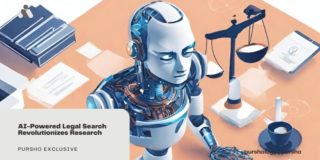Introduction
Generative AI is evolving rapidly and bringing disruptive changes across various industries. SEO is no exception to this rule, and SEO agencies need to understand how to wisely leverage the power of AI to improve their strategies and results. Let’s explore in detail how SEO agencies can successfully start using and integrating generative AI.
What Does Generative AI Do in SEO?
Generative AI models such as ChatGPT and Bard are capable of assisting in content writing, keyword research, and on-page optimization. Although there are some downsides to using AI in SEO, AI-powered SEO tools will bring major improvements, automation, and better performance. Some of the main challenges that SEO agencies face are related to quality control of the content produced and the safety of the collected data.
Main Advantages of Using Generative AI in SEO
- Content Writing and Optimization: AI models can offer quality content generation, optimize the given content and even propose relevant keywords.
- Automation of Routine Tasks: Tasks that are monotonous and time-consuming such as crafting Meta descriptions, evaluating on-page elements of SEO and creating generic reports can be easily automated with AI tools.
- Deeper Data Understanding: AI applications are capable of analyzing large data sets and delivering clear insights that agencies can use to optimize their efforts. This ability of AI to deliver fast and accurate results allows SEO professionals to make better decisions in shorter time frames.
- Improved SEO Performance: By leveraging AI, SEO agencies can achieve better rankings, increased traffic, and higher engagement rates.
How to Use Generative AI in SEO – 5 Essential Tips
- Employ the Help of AI Tools for Content Writing
SEO agencies can start by integrating the use of AI tools such as ChatGPT and Bard that can assist in content writing. Instead of spending time writing drafts, articles, blog posts, and social media content, SEO professionals can just let AI tools generate the first draft which they can later improve from a quality and relevance standpoint.
- Use AI-Based Keyword Research Tools
To discover trending keywords and keyword phrases with high search volumes and low competition levels, AI-based keyword research tools can be of great help to SEO agencies. By finding the best keywords for the topic, AI increases the chances for the content to be seen and read by the relevant audience.
- Use AI for On-Page SEO Audit
AI models have the potential to fully automate the process of on-page SEO audit with real-time suggestions for optimization. AI tools can analyze the SEO quality of the content and propose minor changes to Meta tags, headers, alt texts and other on-page elements, making them more SEO friendly and compliant with the latest search engine rankings algorithms.
- Supercharge Content Quality and Originality
Generating content with the help of AI tools can save valuable time but the resulting content quality may not be the highest. To make sure the content produced by AI tools is authentic and valuable to the relevant audience, SEO agencies should integrate human involvement in the content creation process by fact-checking and editing the AI-generated content before publication. This wise combination of artificial and human intelligence allows SEO professionals to deliver top-quality content on time.
- Ensure Data Safety and Confidentiality
Since AI tools are designed to process and analyze big data sets, SEO agencies need to take appropriate technical and legal measures to protect the safety of their clients’ data and ensure its confidentiality.
Problems and issues
- Content Quality
Content quality is the biggest fear among SEO experts today with AI based content creation. SEO agencies should,
- Have a good editorial policy in place that involves human touch to review and edit.
- AI tools should be used to assist SEO experts and not replace them.
- Data Protection
Data protection is also a key concern for AI tools. SEO agencies should,
- Select AI tools with appropriate security measures in place.
- Update their data protection policies including firewalls to mitigate any threats.
- Train staff on best practices for data handling and privacy compliance
- Redefining roles and work distribution
AI adoption may redefine the roles of existing SEO team members. SEO agencies should,
- Clearly identify tasks that need to be done by the tool and the humans.
- Offer training and support to navigate the tools.
- Encourage collaboration between the tools and the SEO experts.
Investing in Generative AI in the Future
Many SEO agencies are investing in artificial intelligence to remain competitive. Here are some investment tips for the future, today.
- Keep learning and upgrading
AI algorithms get updated regularly. Agencies should look at investing in training and upgrading the skills of the teams on current technologies. This would enable the teams to optimally use the AI tools and get the best out of them.
- Invest in the right AI tools
While choosing AI tools, it is important to identify the ones that provide accurate and reliable data. Tools with high performance and success records should be given preference while choosing AI tools.
- Experiment with new AI abilities
Stay open to exploring new AI capabilities and applications. This includes experimenting with different AI models and integrating AI across various aspects of SEO beyond content creation, such as link building and technical SEO.
Conclusion
Generative AI has tremendous potential for SEO agencies to automate mundane tasks, improve content quality and ultimately boost performance. Once SEO agencies understand the advantages, learn to mitigate the challenges and invest in the right places, AI can be effectively utilized to stay competitive and relevant. The trick is to use AI capabilities to augment human expertise and produce high-quality, authentic and valuable SEO work.
FAQs
- What is Generative AI in SEO?
Generative AI is the application of AI capability to create, optimize and organize content for SEO. Examples of tools that fall under this category include those that generate text, offer keyword suggestions and analyze on-page elements to optimize the page for search engines.
- How can Generative AI improve SEO performance?
Generative AI may improve SEO performance by automating mundane tasks, offering data-driven recommendations, optimizing content to rank and saving time on keyword research, content creation and other tasks.
- What are the challenges of using Generative AI in SEO?
The most significant challenges of using Generative AI in SEO include maintaining quality and authenticity of content, safeguarding data security and privacy and addressing restructuring of roles and responsibilities within SEO teams.
- How can SEO agencies maintain content quality when using Generative AI?
SEO agencies need to establish a strong editorial process that involves human beings to fact-check and edit the content created by AI. This would ensure the content is useful and relevant to the audience and does not contain any inaccuracies or duplicity.
- Is investing in Generative AI worth it for SEO agencies?
Absolutely, investing in generative AI can be very valuable to improve SEO performance, automate mundane tasks and offer insights. However, SEO agencies need to invest in trusted AI capabilities and continuously adapt to rapid technological changes.
- How does Generative AI impact the roles and responsibilities of SEO teams?
Generative AI may result in restructuring of roles and responsibilities within SEO teams as certain tasks are automated and new positions are created to oversee AI tools and optimize their performance. However, training and clear definition of roles are key to seamless adoption.
- What should SEO agencies consider when choosing AI tools?
Agencies should prioritize AI tools that offer accurate and reliable insights, strong security protocols, and a proven track record of performance. Investing in ongoing training and development is also essential to maximize the benefits of AI tools.




